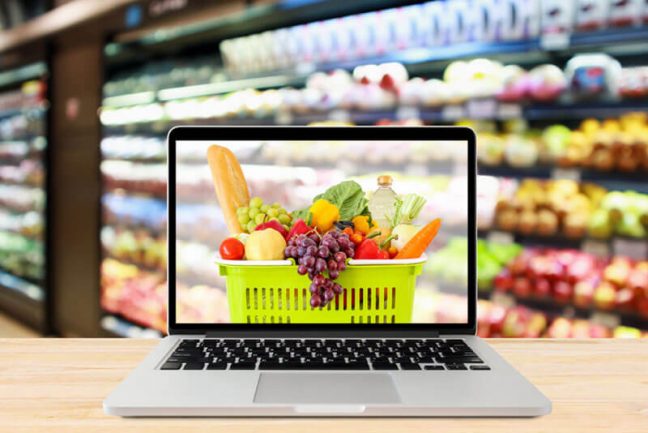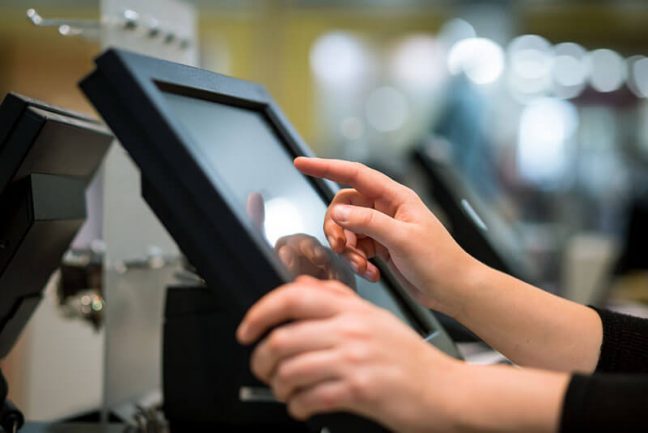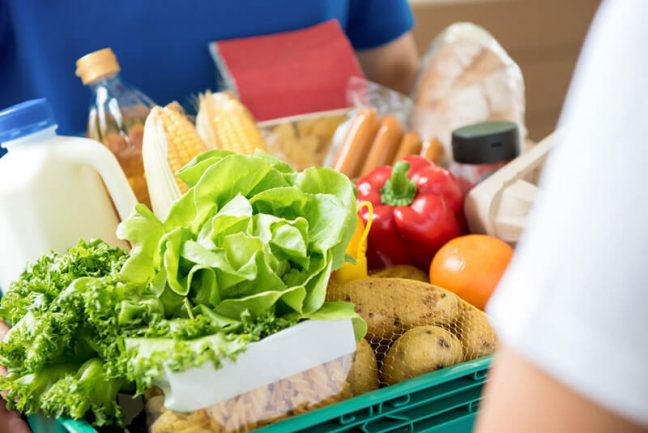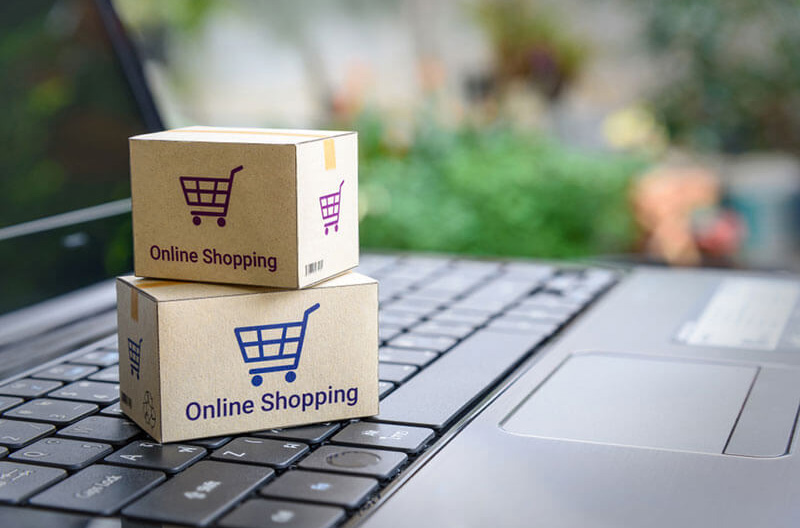Sponsored content


There are a lot of supermarket competitors online already, why should I launch an e-commerce solution now as the pandemic seems to be winding down? 
The last year has seen many national and regional supermarket chains launch or expand their online presence and that trend is expected to continue. A recent study suggested that online grocery is expected to grow to 21.5 percent of U.S. grocery sales by 2025. While we’re thankfully starting to see the light at the end of this pandemic tunnel, most analysts are projecting that the sudden consumer swing to purchasing groceries online, a market that once seemed safe from online competitors is going to be a lasting paradigm shift. Ninety percent of customers are expected to continue shopping online after the pandemic so If your independent supermarket is not selling online yet, you may be late to the party, but you don’t want to miss it entirely.
I see lots of ads for e-commerce systems. Can’t I just sign up and do it myself?
It depends. If your goal is to only sell a small subset of the items in your store online then maybe, but we all know the complexities and challenges of running a supermarket. What about bulk items? Produce? Meat? Prepared foods and meal plans? All of these ads you’re seeing are for e-commerce systems meant for general retail. Just as you wouldn’t put a basic tablet-based point of sale system at your checkout, you shouldn’t just use any e-commerce system for managing your online grocery business. You need something purpose-built for your industry from people with experience in helping grocers grow online. This is where Auto-Star and our team comes in.
If I don’t go with one of the off the shelf systems that I see advertised, what kinds of features should I be looking for?
Your supermarket is unique and your online strategy should fit your business. From in-store or curb side pickup to delivery, our solutions are designed to meet the needs of your business. Look for a solution that not only manages the online sale but also the process for fulfilling orders in-store. When an order is placed online what happens next? Do your staff have a clear process for picking and packing? How are substitutions handled? What happens when someone shows up to pickup their order? How is it finalized in the system and inventory updated? If you have multiple locations, does your eCommerce partner have the ability to manage multiple pickup locations? These are just a few of the features that you should be thinking about aside from the basics of being able to selling online.

Do I need to connect my e-commerce system to my in-store point of sale solution?
This is one of the key areas that many stores miss the mark on. Having a grocery specific point of sale solution like Star-Plus that facilitates your e-commerce strategy and unifies data across all of your sales channels is critically important. You would not want to have different pricing between the store shelf and the end cap, so you need to make sure that your product data is accurate from the POS to the back office to online. By connecting your e-commerce platform to your in-store point of sale solution you can ensure accurate pricing, reduce out of stocks online and consolidate reporting to better measure and manage your business.
Data management is key to your overall e-commerce strategy and Star-Plus enables this. With accurate and robust data in your e-commerce platform fed by the Star-Plus point of sale and back office solution, you will be able to take advantage of smart search, recommendation and substitution features which will ensure that your customers not only find what they’re looking for but also discover add on, convenience and spontaneous items as well. If you’re out of stock on an item, accurate substitutions will ensure you maintain the basket size and an overall convenient purchase for your customer.
Your customers expect a seamless experience from online to in store and you need an integrated solution to ensure that your e-commerce investment doesn’t become a cost center for your business. Products created in store should be uploaded to the e-commerce platform automatically and online sales should update your in-store systems in near real-time.
 Besides the e-commerce platform, what other investments do I have to make?
Besides the e-commerce platform, what other investments do I have to make?
It’s important to understand that the online technology is only part of the investment in developing a successful e-commerce strategy. In speaking with Nith Nadarajah, the founder and CEO of Helios Retail Consulting Ltd., a retail technology consulting firm and e-commerce partner of Auto-Star, he highlighted many key areas that need to be part of your strategy to ensure organizational focus. These include: labor allocation and the capacity of labor, back of store fixtures like freezers and shelving, workstations and customer service areas, parking and traffic flow. If you’re offering deliveries, are you planning to invest in a delivery vehicle, hire a driver, take on insurance, etc.? These are all key areas that need to be discussed with our experts to ensure that your strategy will be a success. Our team can work with your store to ensure that your investment is aligned with your goals and nothing is missed along the way.
How am I going to pay for all of this?
We recently helped a 20M a year independent grocer launch an e-commerce solution including delivery and pickup in-store during the pandemic. Their technology investment has so far netted them a 3 percent increase in sales ($50k per month online and growing) which has given them an approximately a six-month return on investment. This was on top of the flat in-store sales that they maintained, even with less business days due to rolling lockdowns in their area, using the Star-Plus point of sale and supermarket solution. A recent analysis found that approximately 35 percent of online shoppers were new to the store. This shows real growth rather than existing customers just shifting online and that the project is helping to grow their brand outside of their core clientele. This investment will continue to pay off for them year over year as they grow their business and add additional brick and mortar locations soon.
Our store prides itself on amazing service and knowing our customers by name. Won’t e-commerce hurt that?
In the last year our grocery retailers came through for customers more than ever. Through feverish bulk buying of essential items (toilet paper anyone?) your stores were challenged to keep up with demand. This demand kept you busy throughout the year as restrictions were put in place on dining out and people started eating more at home, trying new recipes and with fresh, quality products that you provided them.
Your customers already expect you to be there for them as their lives and purchasing habits change and a good e-commerce strategy can only improve your customer service. Recommend products that your customers may be interested in and offer meal plans and even meal subscriptions to help families simplify their weekly shop. Customer preferences have changed, and if you’re not able to sell to customers the way that they want to purchase they will go to your big box competitors just out of convenience. Ask for donations during the online checkout process and promote your local ball team sponsorship to help continue to engage your community and maintain your community commitments online.
By leveraging the Star-Plus point of sale and e-commerce integrated solutions you can grow your sales, keep your customers from your competitors and provide the same top-notch customer service and community involvement that you’re known for.
Read about Auto-Star‘s expert, Josh Wintoniak, Sales Manager, here.

